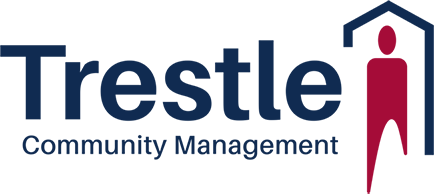Essential Tips for Successfully Managing an HOA or COA: Leadership, Communication, and Financial Planning
Running a successful Homeowners’ Association (HOA) or Condominium Owners’ Association (COA) requires strategic leadership, consistent communication, and smart financial management. Here are some expanded tips for creating and maintaining a thriving community:

Foster Open Communication
Open communication builds trust between the Board of Directors and Homeowners. Regular updates, whether through newsletters, email, or community portals, keep residents informed about ongoing projects, upcoming meetings, and any changes within the community. Encourage Homeowners to attend meetings and provide feedback, ensuring their voices are heard. Transparency in decision-making also helps eliminate misunderstandings and fosters a stronger sense of community engagement.
Manage Finances Wisely
One of the most critical aspects of running a successful HOA or COA is financial management. The Board is responsible for creating and adhering to a realistic budget. This includes collecting assessments promptly, paying bills on time, and managing reserve funds for future repairs or improvements. Periodically reviewing financial statements and conducting reserve studies ensures the community remains financially stable. Keeping accurate and up-to-date financial records also fosters trust among Homeowners and allows the Board to respond quickly to any potential issues.
Enforce Rules Fairly and Consistently
Every HOA or COA is governed by a set of bylaws, covenants, and rules designed to maintain community standards and protect property values. To avoid conflicts or accusations of favoritism, the Board must enforce these rules consistently and fairly. Set clear expectations for Homeowners, and ensure they understand the consequences of non-compliance. Regularly review the rules to ensure they remain relevant and reasonable and be open to feedback when changes are necessary. Fair enforcement builds a sense of security and harmony within the community.
Plan for the Future
A successful HOA or COA must take a proactive approach to long-term planning. This includes budgeting for upcoming maintenance and improvement projects, whether it’s landscaping, painting, or upgrading amenities. By addressing issues before they become urgent, the Board can prevent costly emergency repairs and minimize disruptions to the community. Reserve funds should be regularly assessed and adjusted to account for inflation and unexpected expenses. Planning ahead also includes keeping up with local regulations and ensuring the Association remains compliant with all legal requirements.
Encourage Volunteerism and Community Involvement
A well-run community is one where residents feel invested in the neighborhood’s success. Encourage Homeowners to get involved by participating in committees, attending meetings, or volunteering for events. Engaged residents are more likely to understand the challenges facing the community and be supportive of decisions made by the Board. Having active committees also helps spread responsibilities and gives the Board more time to focus on larger community issues. Community events, such as social gatherings or workshops, can build relationships and improve overall satisfaction within the community.
Build Strong Vendor Relationships
To ensure that the community remains well-maintained, the Board must establish and maintain strong relationships with trusted vendors. Whether it’s landscapers, maintenance crews, or legal advisors, having a reliable network ensures that issues are addressed efficiently and within budget. Always vet vendors carefully, reviewing contracts thoroughly to ensure they align with the community’s long-term goals. Regularly assess vendor performance and seek feedback from Homeowners to ensure quality standards are being met.
Provide Leadership and Guidance
Effective leadership is the foundation of a successful HOA or COA. The Board should work together as a team, prioritizing the best interests of the community over personal preferences. This requires clear communication among Board Members and with the Association Manager, transparency in decision-making, and a commitment to resolving disputes fairly. Board Members should also undergo training on the responsibilities and legalities of their roles to better serve the community.
Success with Trestle
Trestle is committed the helping Board Members run successful HOAs and COAs. By fostering a collaborative environment where Homeowners feel heard and valued, while also staying on top of finances and future planning, Trestle guides Boards, ensuring the long-term success and well-being of their communities. Through consistent leadership and involvement, a well-run HOA or COA will continue to create a thriving and harmonious environment for all residents.
For more guidance on how to effectively manage your HOA or COA, visit our website or connect with us on LinkedIn and Facebook. For further inquiries, please contact us at (425) 454-6404.



